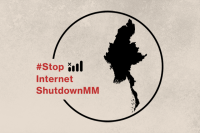Myanmar moves up in Doing Good Index 2020
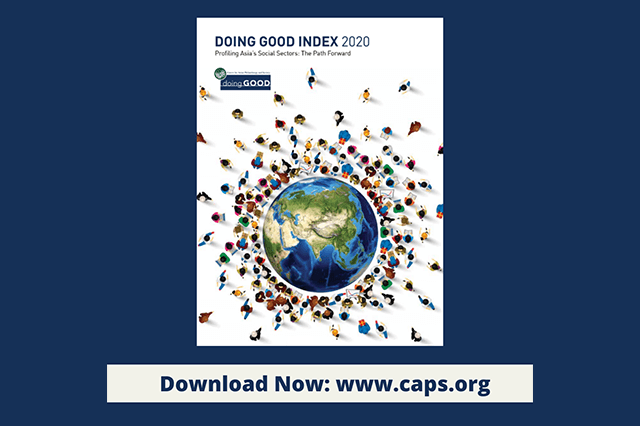
Latest: Doing Good Index (DGI) 2022 reveals inequalities have been exacerbated - 8 July, 2022
In the newly launched Doing Good Index 2020 Report Myanmar has moved up from ‘Not Doing Enough’ in 2018 to ‘Doing OK’ by improving registration and oversight efficiency for not-for-profits.
In 2019, MCRB partnered with the Centre for Asian Philanthropy and Society (CAPS) on research for the Myanmar chapter of the 2020 Doing Good Index (DGI2020) conducting a comprehensive online survey with 105 Myanmar not-for-profit ‘social delivery organisations’ (SDOs) as well as in person meetings with government officials and experts. MCRB decided to work on DGI2020 due to its interest in corporate governance, particularly concerning philanthropic giving by companies and related issues concerning business integrity, tax and transparency.
DGI2020 looks at the enabling environments for philanthropy and private social investment across 18 Asian countries, including Myanmar. The DGI report measures four different areas including tax and fiscal policy, regulatory regimes, socio-cultural ecosystems and government procurement. It is based on original data gathered through surveying 2,189 social delivery organisations and interviewing 145 country experts across all 18 economies.
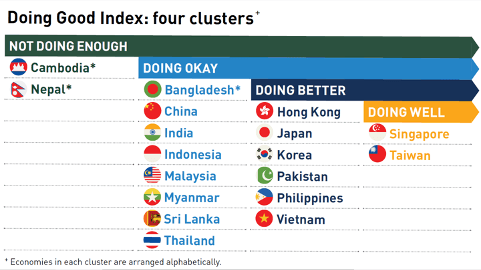
Though still facing many challenges, Myanmar has climbed up the index by improving its registration and oversight efficiency for SDOs. However, regulations remain inconsistently applied and there is a lack of clarity around laws. 46% of Myanmar SDOs surveyed had difficulty understanding relevant laws, which created a key barrier to operational activities. Furthermore, 83% of SDOs believe that laws are not consistently enforced and some social sector organizations are therefore likely to operate bypassing government regulations. Tax regulations add to the confusion. Taxes are often applied on a case-by-case basis, depending on the case officer’s interpretation of the law.
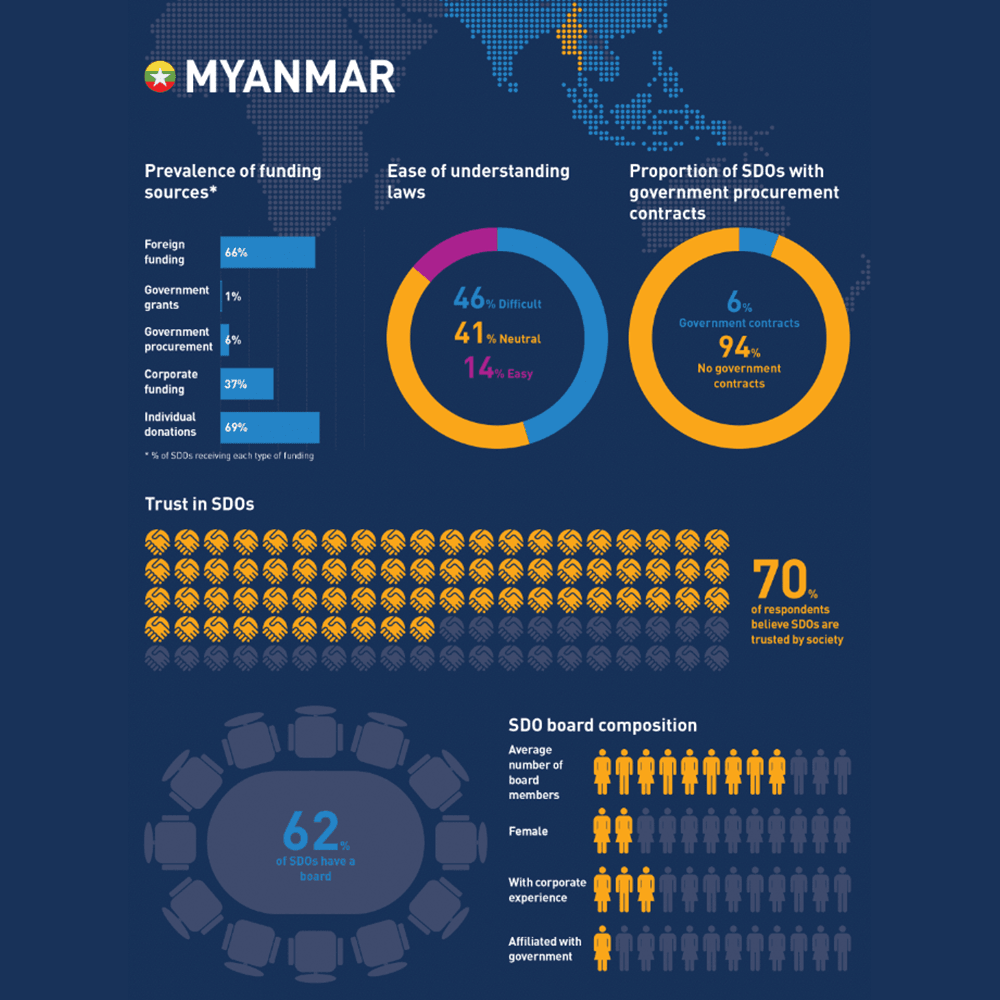
Foreign funding for Myanmar SDOs is more significant than in other Asian countries: 66% of surveyed SDOs report receiving foreign funding, compared to the Asian average of 45%. Government support for SDOs in Myanmar is the lowest in Asia. Only 1% of surveyed SDOs reported receiving government grants. Only 19% of surveyed SDOs currently crowdfund, the lowest in Asia. Funding from corporates makes up 16% of the average Myanmar SDO’s budget.
Considering that Myanmar is consistently featured as a top performer on the annual World Giving Index by the Charities Aid Foundation (CAF), corporate funding remains very low compared to other countries in the region. Dr Ruth A. Shapiro, Chief Executive of CAPS, speaking at MCRB’s responsible business seminar on governance of corporate philanthropy in October 2019, explained the difference between ‘charity’, which she defined as “a spontaneous act of giving”, and ‘philanthropy’, “an organised systemic mechanism to bring about structural change.” She noted that the CAF asks people if they have given money in the last month; this is a practice common in Myanmar. However, CAPS’ study is focussed on structured donations through philanthropy.
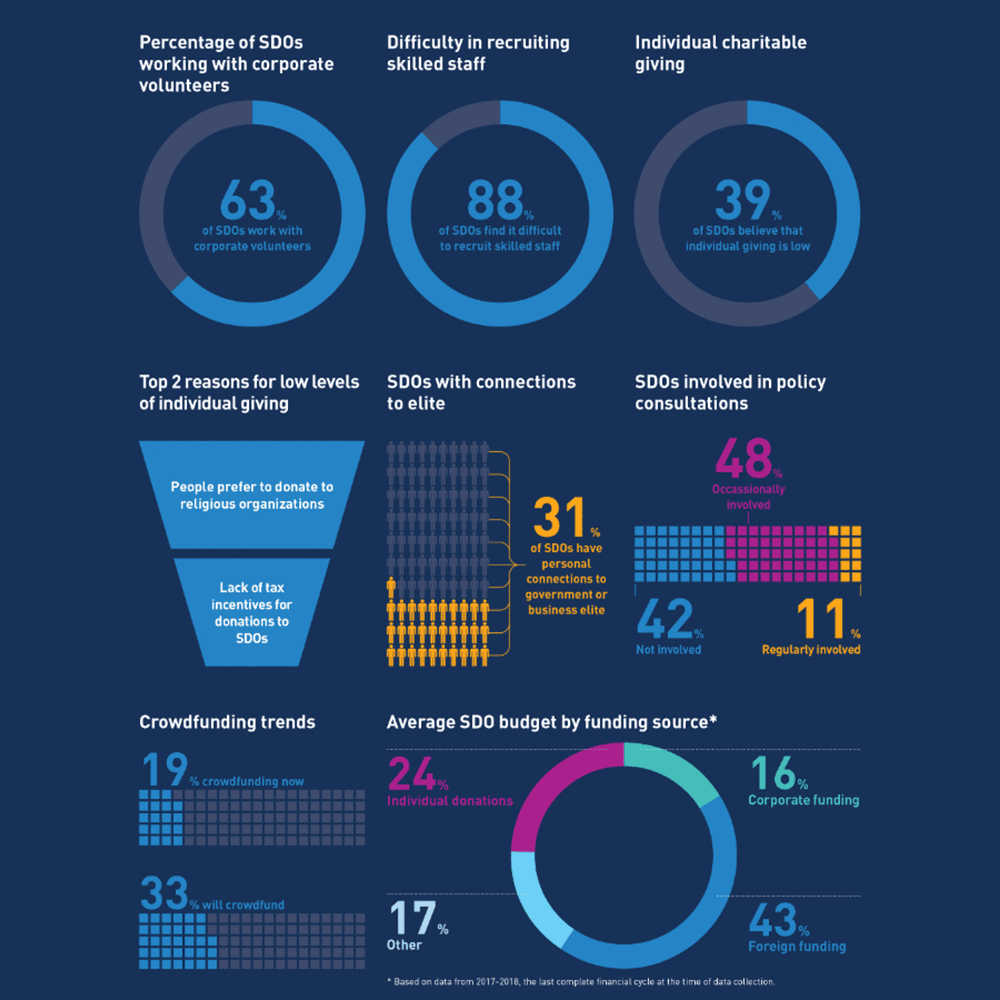
You can read more about the state of the social sector, recent changes, rising trends, and some history in the Myanmar Economy Brief on page 119 of the DGI2020 Report.
The Covid-19 pandemic has highlighted the essential role that business play through their philanthropic giving. It has also reminded many businesses that strong corporate governance makes companies more resilient and able to support both their employees and stakeholders.
Vicky Bowman was interviewed by CAPS in April as part of their survey of how COVID was affected the countries covered in the DGI2020 report, including philanthropic activity by companies and individuals.
 English
English မြန်မာ
မြန်မာ မြန်မာ (unicode)
မြန်မာ (unicode)

